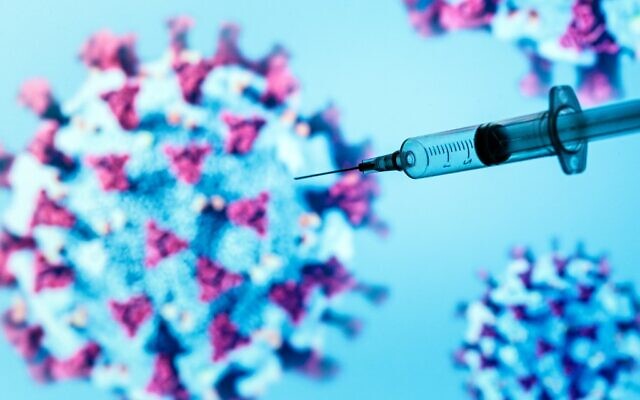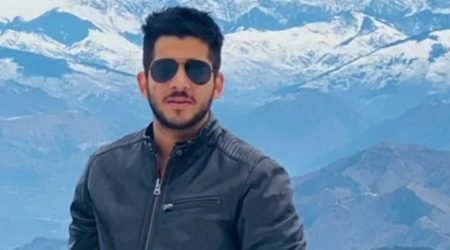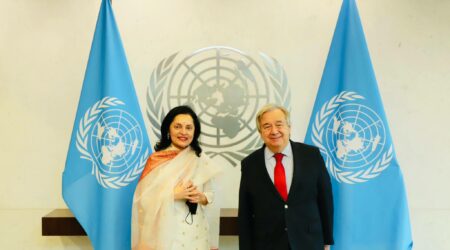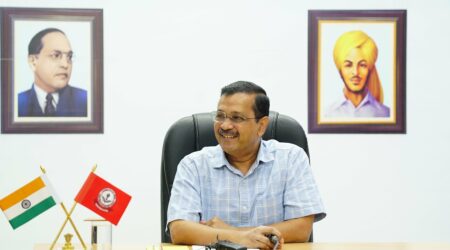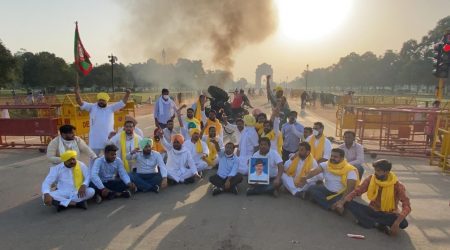By Neera Kuckreja Sohoni
In July 2020, just after the deadly Corona virus was all set to invade the whole world, in an online vaccine symposium organized by the Indian government, Peter Piot, Director, London School of Hygiene and Tropical Medicine warned that without India, there will not be enough vaccines to save the world.
That claim is hardly hyperbole. As major manufacturers of vaccines distributed worldwide, Indian drug companies account for over 60% of vaccines supplied to the developing world. This makes their role in speedy, large-scale vaccine supply pivotal to tackling and controlling the Corona global crises. The paradox is that besides being a vital conduit of global vaccine supply, India is also a sizeable victim of Corona. In 2021, the country could well have the world’s largest Corona positive population.
The vaccine distribution-related consensus in the US and globally is to prioritize those most at risk of exposure or severe infection and to immunize them ahead of all others. The priority target group includes first responders beginning with health workers, followed by elders and those with preexisting conditions who are at a greater risk of dying from the virus. This priority target group is estimated in India to account for about 30% of the population or a staggering 400 million people! A two-dose vaccine, such as Pfizer’s or Moderna’s which are readying for approval in the US to be administered, would pose unprecedented challenges of manufacturing, distribution, and vaccination, along with careful tracking of the vaccinated population to ensure both doses are administered at a proper interval.
According to some estimates, while there is sufficient capacity in India for vaccine manufacturing and accompanying components such as vials, stoppers, syringes, gauze, and alcohol swabs, the bottleneck is likely to be cold storage capacity. The costs entailed are staggering, and the vaccination administration and surveillance capability requirements unprecedented. To help tackle these challenges, the Modi government put in place a task force that includes representatives from state and central government agencies and other experts. In addition to assessing how best to distribute the vaccine(s), and working with vaccine makers to speed up clinical trials and regulatory approvals, the government is compiling a database of public and private healthcare workers at district and state levels, to be uploaded to the Covid-19 Vaccine Beneficiary Management System which is under preparation. Tracking people with pre-existing health conditions or co-morbidities for inclusion in the data bank is expected to be the greater challenge.
Emergencies such as Corona require out-of-the-box thinking and courageous non-bureaucratic approaches. The unprecedented step President Trump took in the US to accelerate vaccine development through massive infusion of funds to pharmaceutical companies, which has led to equally unprecedented fast-tracked vaccine testing and approval is an inspiriting example for India and other countries to emulate. Luckily, India seems to have more than followed suit. It appears to have delivered!
That India has a reservoir of computing talent is well-known. But that it is also host to the world’s largest vaccine maker, the Serum Institute of India (SII) is a recent discovery. Early in the pandemic, the company, located in Pune, successfully contracted to manufacture one billion doses of a corona virus vaccine once approved for use. Being developed jointly by scientists at the University of Oxford and AstraZeneca in UK, the vaccine is currently undergoing phase III clinical trials in Brazil, UK, and US. SII and the Indian government have committed to reserve half the company’s stock of the vaccine for India, and to supply the other half to low-income nations through GAVI (Global Alliance for Vaccines and Immunization).
GAVI is a public–private global health partnership with the goal of increasing access to immunization in poor countries. Assisted by multi-national agencies such as the the World Bank, WHO, UNICEF, donor governments, the vaccine industry in both industrialized and developing countries, research and technical agencies, and non-profits like the Bill & Melinda Gates Foundation, GAVI provides funding support and has been a major stimulus to global immunization initiatives for low-income countries.
Vaccine production is costly. So far, according to Gayathri Vaidyanathan (September 3, 2020, Nature), SII has invested $200 million to manufacture the vaccine, and has produced about 2 million doses for use in regulatory clearances and testing. If the Astra Zeneca vaccine does not work, SII has other candidates lined up. It is developing and testing four other COVID-19 vaccines — including two developed through in-house initiatives and the remaining two in collaboration with biotechnology companies in the US.
Indians are known for being highly competitive and imitative. Therefore, it is not surprising that SII has provoked others to explore the same turf. Similar collaborative initiatives are seen, for instance, of Biologicals E, headquartered in Hyderabad, which has entered into a partnership with a Belgium firm to manufacture a vaccine candidate. Other Indian Immunological companies have linked with foreign and Indian entities to test and manufacture vaccines.
Affordability lies at the crux of beating the Corona pandemic. As manufacturing hubs, India and South Africa have jointly advocated the cause of a patent-free global vaccination. Patents have forever been a dividing line between universality and profitability of healthcare. Medical breakthroughs require costly painstaking R&D, which costs are necessarily built into the price of drugs or in this case of vaccines. Patents serve to indefinitely protect profits which legitimately belong to the inventor.

Wall Street Journal has criticized developing countries led by India and South Africa asking WTO to ease intellectual property rules for COVID-19 vaccines. That is fair criticism, yet the urgency and fairness of a coordinated and humanely equitable global response to the once-in-a-century pandemic cannot be ignored.
This familiar stance was put forward by Wall Street Journal in its fiery editorial (Nov. 19, 2020) titled ‘A Global Covid Vaccine Heist’. “Breakthroughs on vaccines and new treatments are finally offering the world a path to end the Covid-19 pandemic. They’re a tribute to private U.S. corporate innovation”, the essay notes, and continuing, it warns, “but now developing countries led by India and South Africa are making a damaging bid to waive patent protections for these life-saving advances.” It decries the threatened action by these countries to offer a resolution at the World Trade Organization (WTO) meeting on November 20 asking the apex body to waive patent protections for Covid vaccines, therapies and related technologies.
Patents are a longstanding issue and a sore point between the richer and poorer half of the world, often leading to angry diatribe against ‘Vaccine Nationalism’ and ‘Parochialism’ by one side, and ‘Highway Robbery’ and ‘Heist” by the opposing side. Corona crisis has accentuated urgent concerns of developing nations over the rich countries hogging the vaccines and their ancillaries for themselves, and to urge that new treatments and vaccines being developed for COVID-19 be made available promptly, affordably, equitably, and universally. To meet the urgency and imperatives of global demand, South Africa and India have sought waivers to rules that relate to copyright, industrial designs, patents and the protection of undisclosed information or trade secrets. They have further suggested that the waiver be in place “until widespread vaccination is in place globally” and most of the world has developed immunity to the corona virus.
Their demand has been fully endorsed by Africa’s 54 nations as also by eminent healthcare aid organizations such as Doctors Without Borders, which oppose manufacturers in developing countries facing and being bogged down by protracted negotiations for licenses. Pointing out the barriers intellectual property rules have posed in the past to affordable vaccines in developing countries, the African joint statement, issued after an Africa Region conference on the quest for COVID-19 vaccines, refers to an urgent need for countries to “make full use of legal measures … to ensure monopolies do not stand in the way of access.” (See Anirudha Ghosal and Cara Anna, “India, South Africa ask WTO to ease IP rules for COVID-19”, AP News, October 3, 2020)
Drug companies, on the other hand, barring a rare exception, are likely to want to protect their intellectual property to help fund and recoup the costs of their expensive research. Their argument is vintage, which does not make it unfair. Few inventors in history have or would ever surrender their copyright to their creation. To expect pharma companies to do so now seems unrealistic even if the less well off nations consider it unfair. While the WHO and its Director General Tedros have commended PM Modi for his “strong commitment to Covax and making Covid-19 vaccines a global public good”, the overriding clout to determine the course of events lies with WTO.
No one can deny the urgency and fairness of a coordinated and humanely equitable global response to the COVID-19 pandemic. But the economics of healthcare and the fairness of returns to investors without poachers siphoning off some of the hard-earned profits are factors that are equally undeniable.
It is not for the fainthearted to rule one way or another. But arguments can be made for a meeting ground or some kind of half-way solution – one that guarantees speedy agreements that do not obfuscate or intentionally delay contracting processes and can fast-track vaccines’ global distribution but equally, one that does not require surrendering of patents for all times to come, but only for a limited period. In the same spirit of giving, patent holding companies can forgo their share from profits made by manufacturers on sale of vaccines to third parties, but for a limited mutually agreed period.
If the above sounds utopian, so be it.

Neera Kuckreja Sohoni
Ms Sohoni is a freelance
writer and published
author.


